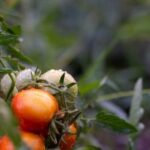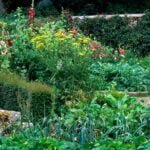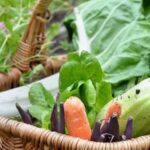Are you wondering if Seven Dust can be used on vegetable gardens? Understanding how to effectively and safely use this product is essential for maintaining a healthy garden. In this article, we will explore the purpose of Seven Dust in gardens, its potential harmful effects on vegetable gardens, alternatives to Seven Dust, and tips for safe and effective application.
Seven Dust is a commonly used pesticide and insecticide that can be beneficial for controlling pests in vegetable gardens. However, it is important to understand the potential risks and hazards associated with its use, as well as alternative methods for pest control. By gaining a comprehensive understanding of Seven Dust and its applications, gardeners can make informed decisions about whether or not to use this product in their vegetable gardens.
In the following sections, we will delve into the potential harmful effects of Seven Dust on vegetable gardens, explore alternative options for pest control, discuss how to safely use Seven Dust on vegetable gardens, and provide tips for effective application. Whether you are considering using Seven Dust or exploring other options for protecting your vegetable garden from pests, this article will equip you with the knowledge needed to make the best choice for your garden.
The Potential Harmful Effects of Seven Dust on Vegetable Gardens
Seven Dust, also known as carbaryl, is a commonly used insecticide in gardens to control a wide range of pests. While it can be effective in managing unwanted insects, there are potential harmful effects that gardeners should be aware of when using Seven Dust in vegetable gardens.
One of the main concerns with using Seven Dust in vegetable gardens is the potential harm it can cause to beneficial insects such as bees and other pollinators. The chemical can also be harmful to other wildlife and pets if ingested. Additionally, if not used carefully, Seven Dust can contaminate the soil and water, posing risks to human health.
To minimize the potential harmful effects of Seven Dust on vegetable gardens, gardeners should consider alternatives that are safer for both the environment and human health. Some alternatives include using natural predators or parasites to control pests, introducing companion plants that repel harmful insects, or using organic sprays made from natural ingredients.
In addition to considering alternatives, it’s crucial for gardeners to educate themselves on how to safely use Seven Dust in their vegetable gardens. This includes carefully following the product label instructions, applying the dust during non-windy days or evenings when bees are less active, and avoiding direct contact with the skin while handling the product.
Alternatives to Seven Dust for Vegetable Gardens
When it comes to pest control in vegetable gardens, Seven Dust may not always be the best solution for everyone. Whether due to environmental concerns or potential harm to beneficial insects, some gardeners may be looking for alternatives to Seven Dust. Fortunately, there are several effective alternatives that can help keep pests at bay without resorting to potentially harmful chemicals.
Natural Pest Repellents
One alternative to Seven Dust is the use of natural pest repellents such as neem oil, garlic spray, or diatomaceous earth. These natural options can help deter pests without posing a risk to beneficial insects or the environment. Neem oil, for example, is effective against a wide range of pests and is considered safe for use on vegetables.
Companion Planting
Another alternative to Seven Dust is companion planting, which involves growing certain plants together to repel pests or attract beneficial insects. For example, planting marigolds near your vegetable garden can help repel nematodes and other pests. Similarly, attracting ladybugs by planting dill or fennel can help control aphid populations.
Biological Control
Biological control methods involve using natural predators or parasites to control pest populations. This can include introducing predatory insects such as ladybugs or lacewings into the garden, or using biological insecticides such as Bacillus thuringiensis (BT) to target specific pests while minimizing harm to other insects.
By considering these alternatives, gardeners can effectively manage pest populations in their vegetable gardens without the potential risks associated with Seven Dust. Whether through natural pest repellents, companion planting, or biological control methods, there are plenty of options available for those looking to avoid chemical pesticides while still protecting their crops from pests.
How to Safely Use Seven Dust on Vegetable Gardens
When using Seven Dust on vegetable gardens, it is important to do so safely in order to minimize potential harm to the environment and to protect beneficial insects. Here are some tips for safely using Seven Dust on your vegetable garden:
- Read the label: Before using any type of Seven Dust on your vegetable garden, carefully read the label for specific instructions and safety precautions provided by the manufacturer.
- Wear protective gear: When applying Seven Dust, wear protective clothing such as long sleeves, pants, gloves, and a mask to avoid direct skin contact and inhalation of the dust.
- Avoid windy days: Apply Seven Dust on a calm day to prevent the dust from being blown away by the wind, which can potentially harm unintended targets.
- Apply sparingly: Use Seven Dust sparingly and only when absolutely necessary. Overuse can lead to an accumulation of pesticides in the soil and may harm beneficial insects.
- Wash vegetables: After harvesting your vegetables, make sure to thoroughly wash them before consumption in order to remove any residual Seven Dust.
By following these safety measures when using Seven Dust on your vegetable garden, you can help minimize potential risks while still effectively managing pests.
Ultimately, it is crucial to weigh the benefits of using Seven Dust against its potential harmful effects. Consider alternative methods of pest control as well as organic options before resorting to this pesticide. Making an informed decision about the use of Seven Dust will help ensure a healthy and sustainable vegetable garden.
Understanding the Different Types of Seven Dust and Their Applications
There are several different types of Seven Dust that are commonly used in gardening, each with its own unique application. Understanding the differences between these types can help gardeners make informed decisions about which type to use for their vegetable gardens.
Chemical Composition and Formulation
The composition of Seven Dust can vary depending on the manufacturer, but they generally contain a combination of chemical insecticides such as carbaryl, permethrin, or pyrethrin. Some formulations may also include fungicides or other additives. It is important to carefully read the label and understand the composition of the Seven Dust before use.
Different Types and Their Target Pests
There are different types of Seven Dust designed to target specific pests commonly found in vegetable gardens. For example, there are formulations specifically for controlling aphids, caterpillars, beetles, mites, and other insects that can damage vegetable crops. Some types may also be designed to control certain fungal diseases that affect vegetables.
Application Methods and Considerations
Depending on the type of Seven Dust being used, it can be applied in various ways including dusting directly onto plants, mixing with water to create a spray solution, or applying as a granular form around the garden soil. Each type has its own recommended application method and considerations for safe and effective use.
By understanding the different types of Seven Dust and their applications, gardeners can make informed decisions about which type is best suited for their specific pest control needs in their vegetable gardens.
The Benefits of Using Seven Dust on Vegetable Gardens
The use of Seven Dust on vegetable gardens can bring several benefits to the overall health and productivity of your plants. Seven Dust is an effective pesticide that can help control a wide range of common garden pests such as aphids, beetles, caterpillars, and mites. By using Seven Dust on your vegetable garden, you can protect your crops from these destructive pests and improve their chances of reaching maturity.
One of the main benefits of using Seven Dust on vegetable gardens is its ability to prevent damage caused by insect infestations. Without proper pest control, vegetables can become susceptible to diseases and reduced yields. Seven Dust provides a protective barrier against harmful insects, allowing the plants to grow unhindered and produce higher quality crops.
Additionally, using Seven Dust can result in cost savings for gardeners. By effectively controlling pests with Seven Dust, gardeners may reduce the need for expensive alternative pesticides or insect-repelling products. This makes it a more economical choice for maintaining a healthy vegetable garden.
Lastly, the use of Seven Dust on vegetable gardens can lead to improved overall plant health. By preventing infestations from destructive pests, plants are able to channel more energy into growth and fruit production rather than defense mechanisms. This can result in larger harvests and healthier plants overall.
| Benefits | Description |
|---|---|
| Pest Control | Prevents damage caused by insect infestations |
| Cost Savings | Reduces the need for expensive alternative pesticides or insect-repelling products |
| Improved Plant Health | Allows plants to channel more energy into growth and fruit production |
Tips for Effective Application of Seven Dust on Vegetable Gardens
When using Seven Dust on vegetable gardens, it is important to follow some key tips to ensure its effectiveness and minimize any potential harm to your plants. First, always carefully read and follow the instructions on the product label. This will provide you with important information about proper application, dosage, and safety precautions.
Another important tip is to apply Seven Dust on a calm day when there is little to no wind. This will help prevent the dust from being blown away and affecting unintended areas or causing respiratory irritation. Additionally, it’s recommended to apply Seven Dust in the early morning or late afternoon when bees are less active to minimize any negative impact on these beneficial insects.
To ensure even coverage and maximum effectiveness, it’s essential to apply the Seven Dust directly onto the foliage of the vegetable plants. Use a duster or shaker to evenly distribute the dust, paying close attention to the undersides of leaves where pests tend to hide. Be sure not to over-apply the product, as this can lead to unnecessary exposure and potential harm to both plants and beneficial insects.
| Tips for Effective Application of Seven Dust | Vegetable Gardens |
|---|---|
| Read and follow product label instructions | Apply on calm days with little wind |
| Apply in early morning or late afternoon | Use duster/shaker for even coverage |
By following these tips for effective application of Seven Dust on your vegetable garden, you can ensure that you are using this pest control method safely and efficiently. Remember that while Seven Dust can be an effective tool for managing pests in your garden, it should be used judiciously and as part of an integrated pest management approach.
Conclusion
In conclusion, the decision to use Seven Dust on vegetable gardens should be approached with caution and careful consideration. While Seven Dust can be effective in controlling pests and promoting healthy plant growth, it also carries potential harmful effects on the environment, beneficial insects, and human health. It is important for gardeners to weigh the benefits against the risks and explore alternative methods of pest control before resorting to Seven Dust.
One alternative to using Seven Dust is implementing natural pest control techniques such as introducing beneficial insects, practicing crop rotation, using organic insecticidal soaps or oils, and maintaining proper garden hygiene. These methods can help minimize pest damage while preserving the overall health of the garden ecosystem.
If a decision is made to use Seven Dust, it is crucial to follow safety guidelines for application. This includes wearing protective gear during application, avoiding contact with edible parts of plants, and carefully reading and following the instructions on the product label. By taking these precautions, gardeners can minimize potential harm to themselves, their plants, and the environment.
Ultimately, by educating themselves about the potential risks and benefits of using Seven Dust on vegetable gardens and exploring alternative methods of pest control, gardeners can make an informed decision that aligns with their values of sustainability and environmental responsibility. Making informed decisions will not only benefit the health of vegetable gardens but also contribute to a safer and healthier environment for future generations.

If you’re looking to get into vegetable gardening, or are just looking for some tips on how to make your current garden better, then you’ve come to the right place! My name is Ethel and I have been gardening for years. In this blog, I’m going to share with you some of my best tips on how to create a successful vegetable garden.





